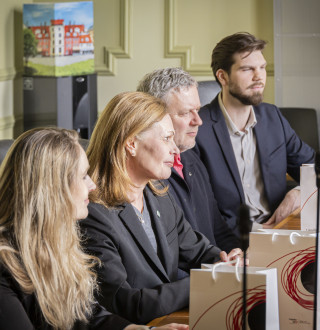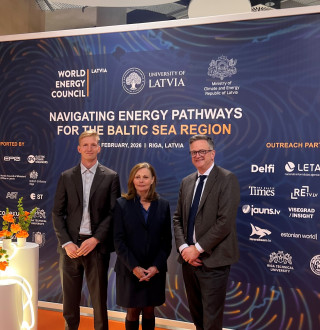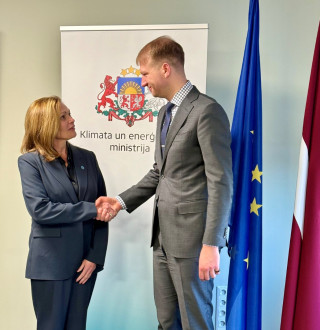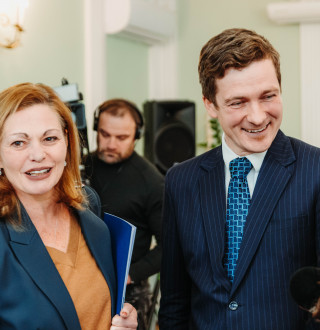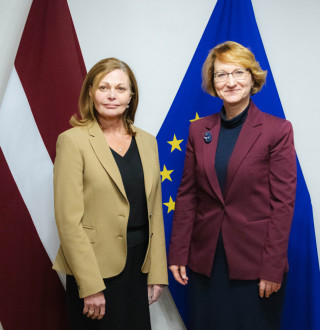This year, the Arvamusfestival – annual opinion festival in Paide, Estonia – took place on August 9 and 10, with our colleague Maija Kāle, an advisor on sustainability issues, joining as one of the panellists.
Maija participated in the discussion titled "Meat(balls) killing the green transition?". Besides discussing the impact of meat on the planet, panellists also shared their insights on food waste and the circular economy. In Estonia alone, approximately 84,000 tons of food are wasted each year, amounting to around 164 million euros. Despite ongoing public awareness campaigns and efforts to reduce food waste, the problem persists, with waste levels rising throughout the entire food supply chain, from farms to households. This challenge is not unique to Estonia, highlighting the need for global solutions that all countries can commit to implementing.
The discussion, hosted by the Nordic Council of Ministers' Office in Estonia, also featured Tea Danilova, Director of the Estonian Foresight Centre, Petri-Jaan Lahtvee, Professor and Researcher from Tallinn University of Technology, and Nesli Sözer, Professor and Researcher from Finland's VTT Technical Research Centre. The conversation was moderated by Madis Tilga, an advisor at the Ministry of Climate of Estonia.
The participants explored the environmental, economic, and societal impacts of the food cycle, as well as modern eating habits and food chains. While the topic itself isn't new, the significance of these discussions remains vital, which is evidenced by the increasing levels of food waste and the growing interest in food and sustainability-related discussions at the festival.
The rapid advancement of technology is impacting not only the volume of food production, but also the composition of food products. The panellists urged listeners to be mindful consumers, encouraging them to actively seek out information about both the origin and ingredients of their food, as well as the production methods used – details that are often not transparently disclosed but are essential for long-term health. While technological progress in the food industry offers many benefits, it also introduces risks that we may not yet fully recognize.
In her address, Maija highlighted the significant impact of how we talk about food, particularly new products in stores and the public perception of specific food items. She also referred to the Nordic Nutrition Recommendations, which contain clear guidelines on what is considered healthy, nutritious food, and beneficial for the planet in the long term. For decades, the food industry has been driven by misleading information, disinformation, and the occasional vilification of certain products – not because of their health effects, but due to business interests.
The participants called on the audience to be vigilant and take responsibility for the quality of the food they and their families consume, as well as the sources of both the food and the information they rely on.
Arvamusfestival is an annual celebration of democracy and dialogue in Estonia. It’s a meeting place for all layers of society, giving a platform for different worldviews. Its mission is to improve debate culture and civic education. Like the conversation festival Lampa in Cēsis, Latvia, this festival also aims to promote the culture of debate, to educate, and raise awareness of national and global issues. Arvamusfestival is a member of the Democracy Festivals Association, which facilitates international collaboration, enabling the exchange of experiences and knowledge among democracy festival organizers across different countries.
Video recording of the discussion is available here.
Photo: Arvamusfestival
